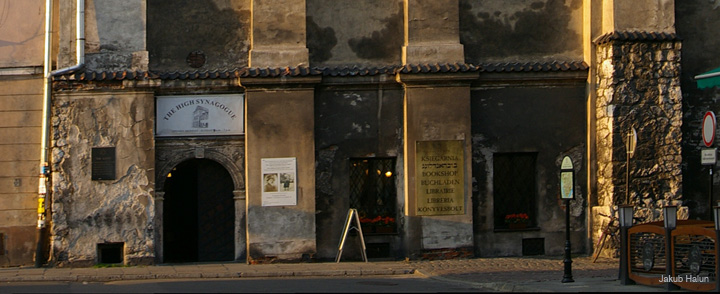By Emily K. Alhadeff, Associate Editor, The Jewish Sound
Underneath the rubble and ashes of Eastern Europe lies a buried civilization, and one of its excavators is former West Seattle resident Gerardo Ojeda-Ebert.
This spring, with Rabbi Olivier BenHaim and members of Bet Alef Meditative Synagogue, Ojeda-Ebert will travel to the Czech Republic and Poland on a tour that focuses not on the end of Jewish life, but on the millennium of life before it was silenced in World War II.
“We are going to see Yiddish Atlantis,” Ojeda-Ebert said. “It’s a vast continent that has disappeared. We are going to meet the gatekeepers.”
Born in Chile to secular, multiethnic parents from Germany, Ojeda-Ebert moved to East Germany as a teen for school, and ended up spending the next 25 years in Poland reviving Jewish life under communist rule.
During that time, he performed in Yiddish theater around the country, organized underground Shabbat gatherings, co-founded the Jewish FORUM Foundation, and contemplated with friends a Polish Jewish museum — which exists today.
“That started around a bottle of vodka 30 years ago,” he said.
As a protected national minority, Ojeda-Ebert and his friends had no trouble circumnavigating the country to perform Yiddish theater, as long as the censor approved the scripts. It was then, as a young man, he realized his calling, when after a production of “Bonjour Monsieur Chagall,” an elderly Holocaust survivor approached him.
“‘As long as you’re singing with a Yiddish heart and a Yiddish neshama [soul], Hitler didn’t kill us,’” he told him.
“We have the amazing responsibility to keep this message alive,” Ojeda-Ebert said.
From there, he got involved with the “Jewish flying university” — “Because we had to fly from one private apartment to another private apartment to run away from the police,” he explained — and sat by the phones for calls from Poles who discovered their Jewish heritage as adults and didn’t know how to process the information.
“Most of the Jews in Poland are not Jews by birth; they’re Jews by surprise,” he said. Ojeda-Ebert and his comrades would listen to their stories, then ask if they’d like to meet other people with the same story or eventually get involved in Jewish organizations.
Although Ojeda-Ebert was surrounded by Jews growing up, his non-religious family made no mention of Judaism, and he attended a Lutheran school.
“I’m a Jew by surprise also,” he said. “I discovered when I was 14 that I had Jewish ancestry.”
Today, Ojeda-Ebert resides in Panama City, Panama, and spends time in West Seattle with his wife, Hannah. In addition to attending Bet Alef since 1995, Ojeda-Ebert is a life coach and counselor, and in the process of creating a new model for orphanages for at-risk youth in extremely impoverished areas in Latin America. He takes his inspiration from Janusz Korczak, the Polish-Jewish orphanage director who refused to abandon his children, and as a result was sent to Treblinka.
“I studied everything about Janusz Korczak, and it changed my life,” he said.
Ojeda-Ebert led a similar tour to Poland and the Czech Republic in 2008 with Rabbi Ted Falcon, the founder of Bet Alef, but this trip is different, he explained. This program requires participants to attend monthly meetings and workshops to prepare them for the depth of the trip, and he provided them with a 10-page list of suggested books to read.
The group will visit the Terezin, Treblinka and Auschwitz concentration camps, but the focus is on Jewish life, as well as Bet Alef’s defining trait, meditation.
“I think the fact that Bet Alef approaches everything it does meditatively makes a difference in the way we travel, too,” said BenHaim. “We don’t rush from one touristic spot to the next. We visit fewer places but we take the time to really be in the places we find ourselves.”
For BenHaim, his grandmother’s passing last year triggered the trip. BenHaim’s mother will join the program in a sort of pilgrimage to her mother’s native Warsaw.
“One evening sitting shiva, I spoke to my mother about having wanted to go to Poland for a while, and that now might be a good time to try,” he said. “On a personal level, this trip is extremely important to me.”
Ojeda-Ebert looks forward to introducing Bet Alef to the gatekeepers of the Yiddish Atlantis, and sees himself as a bridge-builder between different walks of Jewish life.
“What Rabbi Olivier teaches can be attractive to young non-religious people of Jewish descent,” he said. “How come this people, after all they went through…still want to be Jews? What can we learn from that? How can we contribute to that rekindling Jewish light?”

Thank you for this beautiful article Emily and all the staff at the JT News.
There are a few spots left for those interested to go on this trip with us.
Feel free to contact me at [email protected]